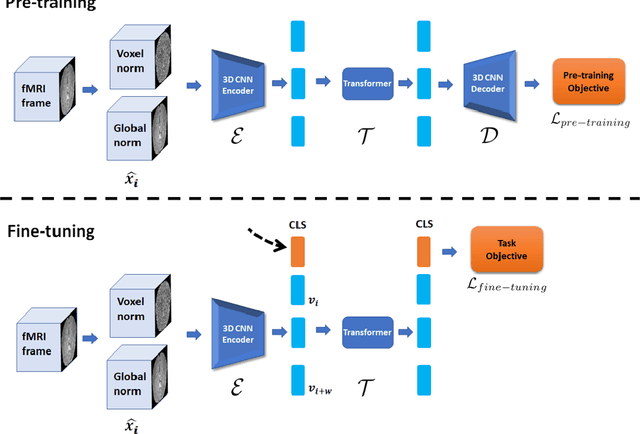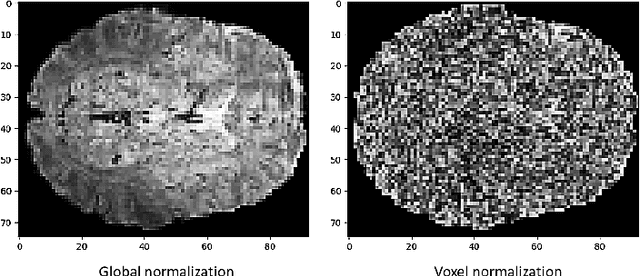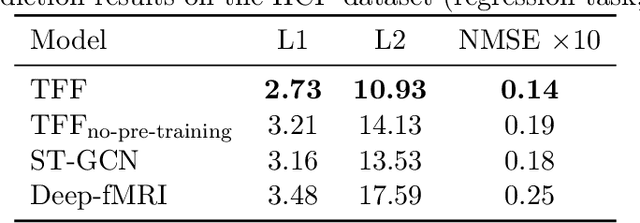Gony Rosenman
LLM Questionnaire Completion for Automatic Psychiatric Assessment
Jun 09, 2024Abstract:We employ a Large Language Model (LLM) to convert unstructured psychological interviews into structured questionnaires spanning various psychiatric and personality domains. The LLM is prompted to answer these questionnaires by impersonating the interviewee. The obtained answers are coded as features, which are used to predict standardized psychiatric measures of depression (PHQ-8) and PTSD (PCL-C), using a Random Forest regressor. Our approach is shown to enhance diagnostic accuracy compared to multiple baselines. It thus establishes a novel framework for interpreting unstructured psychological interviews, bridging the gap between narrative-driven and data-driven approaches for mental health assessment.
Pre-training and Fine-tuning Transformers for fMRI Prediction Tasks
Dec 10, 2021



Abstract:We present the TFF Transformer framework for the analysis of functional Magnetic Resonance Imaging (fMRI) data. TFF employs a transformer-based architecture and a two-phase training approach. First, self-supervised training is applied to a collection of fMRI scans, where the model is trained for the reconstruction of 3D volume data. Second, the pre-trained model is fine-tuned on specific tasks, utilizing ground truth labels. Our results show state-of-the-art performance on a variety of fMRI tasks, including age and gender prediction, as well as schizophrenia recognition.
 Add to Chrome
Add to Chrome Add to Firefox
Add to Firefox Add to Edge
Add to Edge